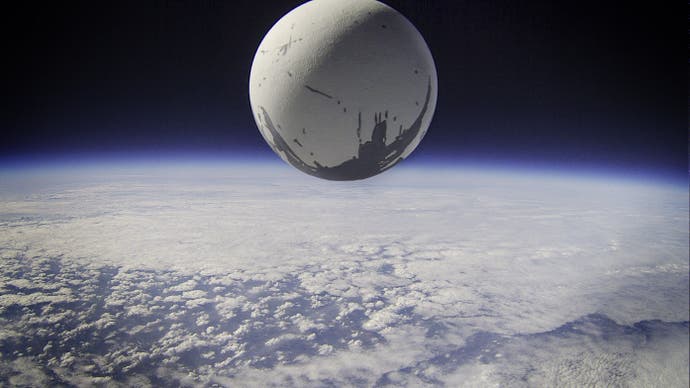Destiny 2 targeted in lawsuit from writer who says Bungie copied his work
For 2017's Red War storyline.
Bungie is being sued for copyright infringement by a writer who claims the studio copied his "original work about a unique and captivating fantasy world" for Destiny 2's Red War campaign.
The lawsuit (as spotted by TheGamePost) was filed with the US District Court for the Eastern District of Louisiana by author Kelsey Martineau. He accuses Bungie of "deliberately copying and appropriating [his] copyrighted content", arguing aspects of Destiny 2's Red War storyline - its antagonistic Red Legion army, in particular - were taken "directly" from an original work published via Wordpress years before the (now vaulted) Destiny 2 campaign's 2017 release.
According to the lawsuit, Martineau, using the pen name Caspar Cole, authored his "original work about a unique and captivating fantasy world" in 2013 and 2014, telling the story of a "powerful military force... embroiled in an unending cycle of warfare" known as the Red Legion.
Alongside the fact Destiny 2's Red Legion Cabal shares the same name, Martineau argues both armies' leaders feature near-identical motivations. His creation, Yinnerah, and Destiny 2 villain Dominus Ghaul are both "urged, guided, and assisted by outcast mentors (scholars) to overthrow their leaders to rise to power with the intentions of invading Earth", something they plan to do by seizing control of an orbital installation hovering above the planet - the Traveler in Destiny 2's case, and Martineau's Tononob Station.
"In Martineau's work, the Red Legion, a militaristic faction, is described as monitoring beings on Earth for an extended period, withholding direct contact while observing their behaviours and connections," the lawsuit continues. "This is a unique narrative element that gives rise to omnipresent danger and suspense."
Martineau's lawsuit goes on to highlight further perceived similarities between the two works, including the fact both armies have units known as Legionnaires, both make use of dog-like "war beasts", both utilise flamethrowers, and both use "extremely powerful weapons that can bring about the destruction of an entire race". Additionally, both armies are challenged by rebel resistances, both go on quests for "significant relics and weapons", and both "systematically destroy civilian settlements for its leader". Which is to say, there's arguably little there (other than perhaps the shared use of "concepts relating to consciousness transfer and the ethical dilemmas surrounding it") that isn't common across countless war-based sci-fi stories.
Martineau - who suggests Bungie's "need to completely start over" the development of Destiny 2 just 16 months prior to its release was the driving force behind the alleged copying of his work - is seeking damages and injunctive relief. Bungie is yet to respond to the lawsuit.
In other Destiny 2 news, Bungie's efforts to build enthusiasm for the game's future amid significant layoffs at the studio and mounting fan concerns continued last week with yet more teases for next year's Codename: Apollo expansion - which is now confirmed to be whisking players to a "Metroidvania-inspired destination".









.png?width=291&height=164&fit=crop&quality=80&format=jpg&auto=webp)